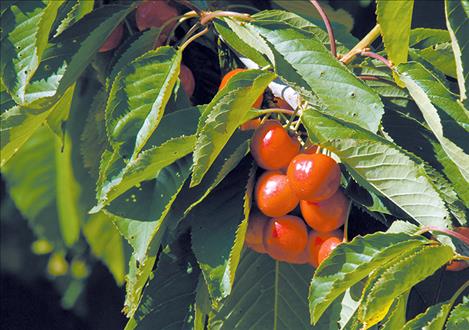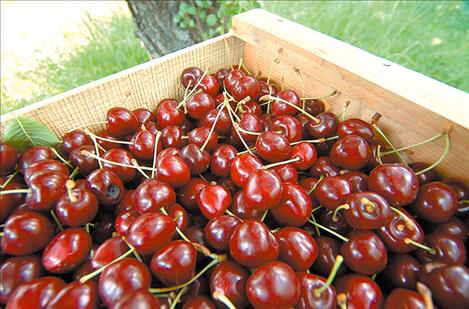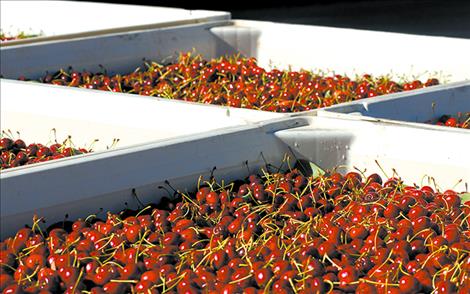Cherry checkoff nixed by 3-1 margin
Hey savvy news reader! Thanks for choosing local.
You are now reading
3 of 3 free articles.
POLSON — Montana cherry growers have voted to eliminate the Montana Cherry Research and Market Development program, aka the “cherry checkoff.”
The state Department of Agriculture will now take steps to eliminate the program, a press release states.
Seventy-five percent of cherry growers who participated in the mail-in balloting voted to terminate the program, said Ben Thomas, director of the Department of Agriculture. The vote was 52-17. The result was announced last week.
After a Sept. 14 public hearing where feedback on both sides of the issue was heard, a ballot referendum was sent by mail to more than 100 Montana cherry growers.
Per state law, any remaining checkoff funds will now revert to the state’s general fund.
Cherry growers have contributed a half-cent per pound of sales toward the program, which was created in 2005 to help with education and controlling the cherry fruit fly. The program also helped fund a cherry symposium each year.
According to Department of Agriculture spokesman Andy Fjeseth, about $11,500 will be reverting to the state general fund. He said that the cherry checkoff raised an average of about $10,500.
Local reaction
Bruce Johnson, president of the Flathead Lake Cherry Growers Co-op, said the group’s nine-person board of directors supported eliminating the checkoff because the program was not functioning the way the co-op thought it should, he said.
For example, some cherry growers never contributed funds to the program and there was not a way to force them to comply, he said.
In addition, in recent years a five-person cherry research and development committee would not agree to using funds from the checkoff in the pest management area, which consists of land within two miles of Flathead Lake. Three of the five people on the committee in the past two years refused to do so, Johnson said.
Checkoff funds had been previously used to hire an employee who would educate cherry orchard owners about the fruit fly, which can lay its eggs in cherries. If such a cherry would get to market and contain larvae, that would not be good for the cherry business, he said.
The employee at times contacted Lake County and received approval to spray trees that had not been sprayed to combat the fruit fly. A bill for that service was then subsequently sent to the property owner, Johnson said. The employee could also cut down “feral” cherry trees that no one owned.
Although cherry fruit flies are not as big of a problem locally as they were in 2005, they are still a problem and will always be a problem, he said.
The co-op has come up with a new way to fund pest management and is currently working with Lake County weed control on an agreement, he said. This will involve the co-op — through its 70 members — paying a fee to the county.


















